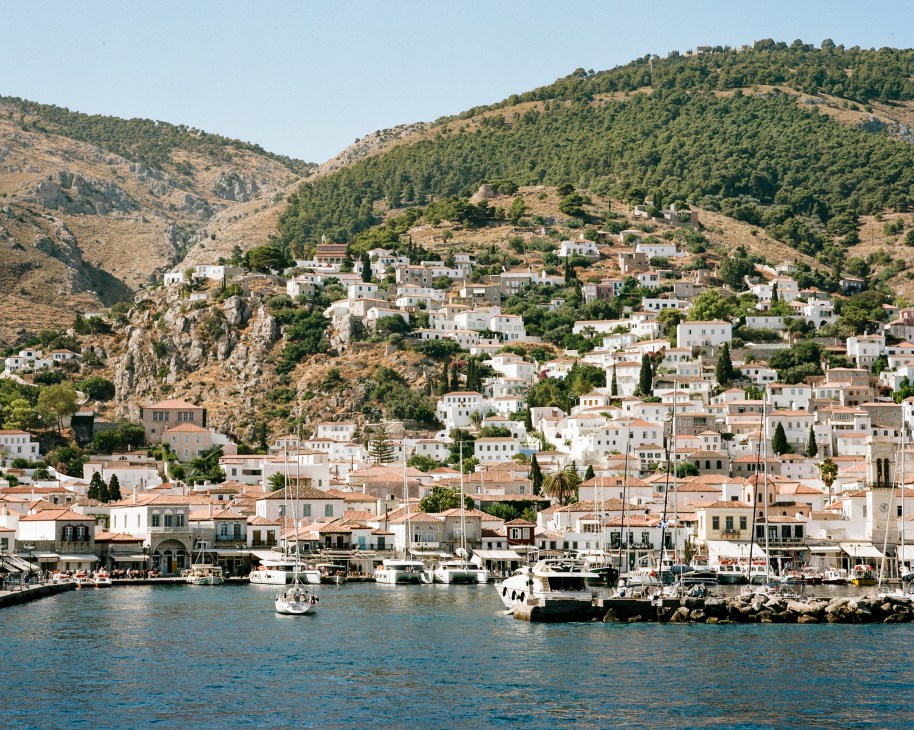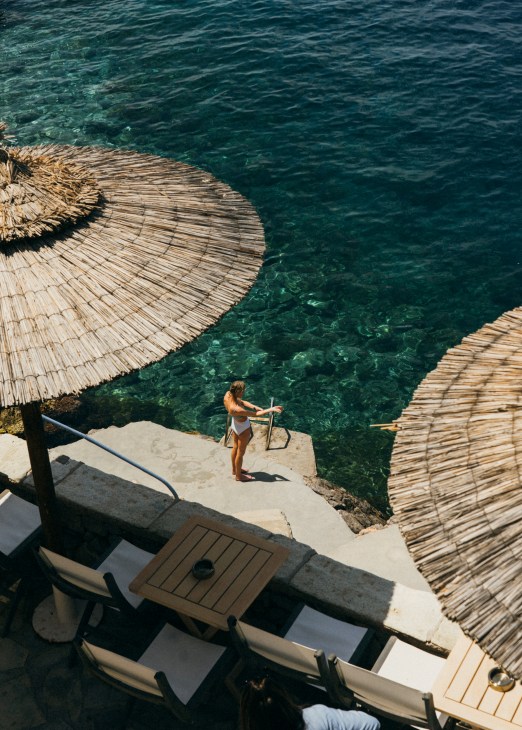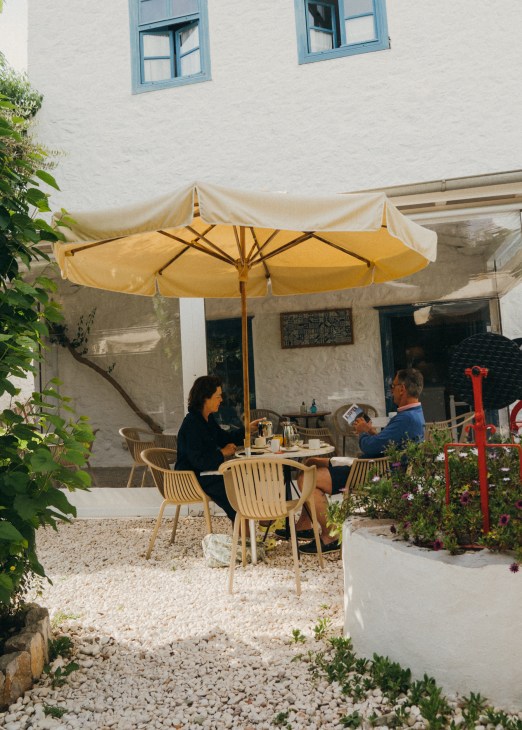Hydra’s storied past, future and present: What we learned from our sit-down with George Koukoudakis
The mayor of the Greek island spoke to Monocle about the city’s challenges, from short-term rentals and housing to climate change.
Tell a Greek that your favourite island in their country is Hydra and you’re likely to see a wistful expression on their face. The tiny Aegean island occupies a special place in the Greek imagination: it’s the birthplace of five prime ministers and Pavlos Kountouriotis, the first president of the Second Hellenic Republic, who was elected in 1924. Not only that, storied Hydra amassed a fortune with its powerful merchant naval fleet and played a key role in the Greek War of Independence, which spanned from 1821 until 1829.
Later came writers and other creatives from across the globe, including Henry Miller, the American author of the 1934 novel Tropic of Cancer, and Canadian singer-songwriter Leonard Cohen, who would bring the minuscule island not only international renown but also give it its own modern mythology. Today it’s beloved by the contemporary-art crowd, attracting artists and collectors with its buzzy summer exhibitions, installations and residencies.

Though less than 70km from Athens, Hydra is a delightful place apart. For one thing, car traffic has long been banned here: visitors and residents alike must walk its steep steps, mountain trails and coastal paths or take a mule and a taxi boat. From the island’s horseshoe-shaped port, its eponymous main town rises like an amphitheatre lined with 18th-century stone mansions and whitewashed villas. Elsewhere, you’ll find charming hamlets surrounded by rugged hillsides dotted with churches and monasteries. The local population is just 2,000. Not much seems to have changed since the days when Miller marvelled at Hydra’s “wild and naked perfection”.
Sitting in his office in the town hall, steps away from where the boats dock, Hydra mayor, George Koukoudakis, points out portraits of the island’s legendary seafarers and independence fighters. He waxes lyrical about the history and identity of his birthplace. Elected for a third term in 2023, Koukoudakis, who is also a professor at the nearby Hellenic Naval Academy, is passionate about preserving all that makes the island special. More than anything, that means mitigating the impact of mass tourism. “We are protected from too much tourism by the fact that we are a car-free island,” he says. Laws also serve as a brake on development. “We are not allowed to build new houses – just renovate existing ones – so our capacity for hosting tourists is limited. This is the reason why we aim to attract a certain type of tourism that is appreciative of what makes Hydra unique.”


Unlike the party islands of Mykonos or Santorini, Hydra unapologetically moves to its own laid-back rhythm. But even though it has managed to escape more rowdy elements, it faces its own challenges. A desalination system has ensured adequate water supply since 2014 but broader climate-change related issues are a concern. A team at the University of Athens is researching how to protect Hydra from floods, earthquakes and forest fires. Last summer, locals were dismayed when a large swath of the island’s only pine forest was set ablaze by fireworks that had been launched from a superyacht.
“We are fully aware of climate change and the challenges that it presents,” says Koukoudakis, adding that he would like to see more support from the central government in Athens. “We are trying to adapt to these challenges but we are a very small and understaffed municipality.”



The question of holiday homes and the Airbnb effect is another headache. Many Hydriots complain that teachers, doctors, police officers and other essential workers often cannot find a place to live on the island. “This is a serious challenge,” says the mayor. “We cannot build new homes, so when someone purchases a house but doesn’t really use it or just rents it out to make money on Airbnb or other platforms, that’s a problem. We ask those who come here and buy property with financial investment in mind to be aware of the needs of local society and to protect and respect the specialness of this place.” Koukoudakis laments that only the central government has the power to limit the spread of Airbnb. “If I had that authority here, I would restrict it and raise taxes on it too.”
In the longer term, the mayor wants to see Hydra building on its identity as a cosmopolitan beacon in the world, a place with a rich artistic heritage that continues to lure visitors, be they day-trippers or those who intend to stay longer. “Artists feel the difference of our island,” he says. “I want Hydra to continue to be a destination for creative people.”
Hydra has always revelled in its exceptionalism and what works here might not work so well elsewhere in Greece. However, perhaps other islands trying to overcome modern challenges could learn from this timeless part of the Saronic archipelago where some things never change.


